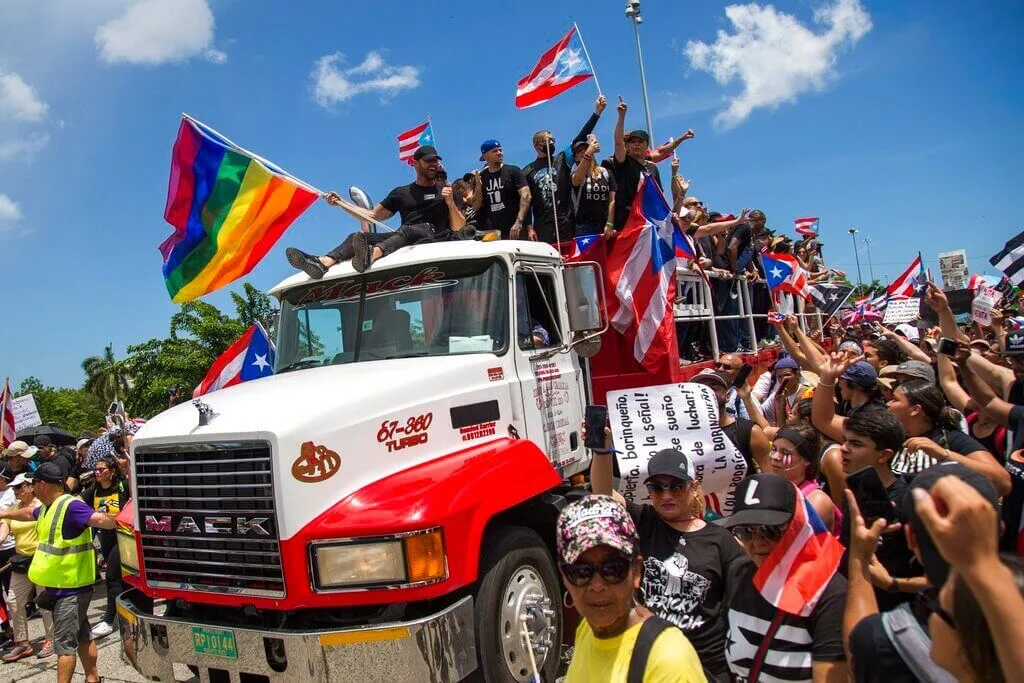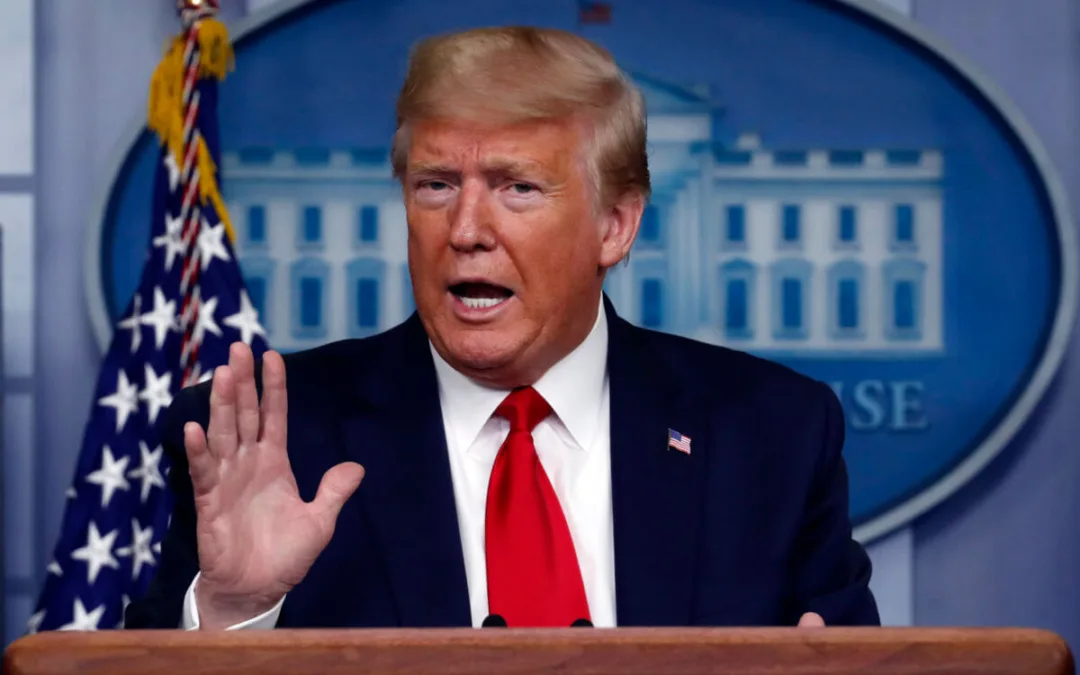
Image via AP Photo/Dennis M. Rivera Pichardo
Truck driving has become one of the most important trades in Puerto Rico because of the island’s dependence on imports.
On a daily basis, truckers in Puerto Rico go unnoticed on the island’s highways. It’s only when they honk their unmistakable horns that their presence is made known in the midst of the bustle.
Truck drivers are responsible for transporting more than 82% of Puerto Rico’s food and goods all over the island.
READ MORE: Jill Biden Shows Solidarity With Puerto Rico’s Teachers and Healthcare Workers
“The island’s truckers have historically been the force that generates the entire economy, because in Puerto Rico there are no trains, there are no planes to transport from one place to another,” Víctor Rodríguez, general coordinator of the Frente Amplio de Camioneros de Puerto Rico (FACPR), told Floricua.
Over time, this important role has given truckers sociopolitical power that can paralyze the island.
A single day in which truckers halt their services can lead to losses amounting to millions of dollars, according to Edwin Marrero, spokesperson for FACPR.
In 1972, truckers held their first protest that stopped all services to demand a better tariff system. As independent workers, they have to incur the cost of diesel, vehicle insurance, and permits, among other expenses.
That year, after the protests, a law was passed to regulate transportation of cargo on public roads for commercial and industrial use on the island.
In 1974, 1979, and 2005, the tariffs were again the cause of protests. The drivers use the concept of “asamblea permanente” (permanent protest) to describe the cessation of operations. As independent contractors, they can’t go on strike under the Taft-Hartley Law, also know as the the Labor Management Relations Act, which covers trade unions. Instead, they have the constitutional right to assemble as any other citizen can.
In 2005, then-Gov. Aníbal Acevedo Vilá even activated the National Guard against the drivers.
“That was the biggest [protest.] Everything stopped, gasoline, all transportation, the construction industry, all services stopped”, Rodríguez said.
The People’s Allies
In addition to the government, the people also recognize the power that truckers have, despite the fact that some are bothered by their protests, because they cause heavy traffic and halt all activity.
“But they know that we were the ones who were on the streets the next day after Hurricane María to help the island get back on its feet”, Marerro said. “They know that we get up at 1 a.m. and are still on the street until 8 p.m. so that when they go to the supermarket, they will find their goods.”
In Verano del ‘19, it was the people who turned to the truckers to demand that then-Gov. Ricardo Rosselló resign after the chat scandal.
“We went on a television program on Tuesday and gave Rosselló an ultimatum, that if on Thursday he was still there, on Monday we were going to stop all services until he resigned. On Thursday he resigned,” Marrero said, adding that it is important for them to not abuse their power.
The truck drivers also support other causes. For example, they recently spoke out against gender violence and currently support UTIER employees, who are against LUMA Energy’s contract, which would privatize the Electric Power Authority (AEE).
Recently, the truckers were about to protest when the Financial Oversight Board, known as “La Junta,” decided to repeal the new haulage rates approved last year by the Bureau of Transportation and Other Public Services (NTSP by its Spanish initials).
READ MORE: Parents in Puerto Rico Protest 2-Week School Closings After Covid Spike
Carlos Rodríguez, coordinator of FACPR, confirmed that they reached a temporary agreement with La Junta, which recognized the importance of their work.
“They do not have anything to do with the tariff system of the carriers,” Rodríguez said. “The rates are still in force, and we are going to continue charging them, but if La Junta manages to get its way, then we are going to fight it to the very end. We will not hesitate to call on our associates to vote to stage a permanent protest, and this time, it will be the largest assembly in history.”
Politics

Teamsters and UPS Reach Tentative Deal to Avoid Strike, 340,000 Workers to Get Raises
The tentative deal represents a huge win for full- and part-time UPS Teamster workers, who would get significant pay raises and better working...



One Republican Senator Is Blocking 265 Military Promotions, Leaving the Marines Without a Confirmed Leader
Sen. Tommy Tuberville's decision means these military officers are not getting the pay raises they’re owed, cannot move their families to wherever...
Local News



Teamsters and UPS Reach Tentative Deal to Avoid Strike, 340,000 Workers to Get Raises
The tentative deal represents a huge win for full- and part-time UPS Teamster workers, who would get significant pay raises and better working...



One Republican Senator Is Blocking 265 Military Promotions, Leaving the Marines Without a Confirmed Leader
Sen. Tommy Tuberville's decision means these military officers are not getting the pay raises they’re owed, cannot move their families to wherever...




